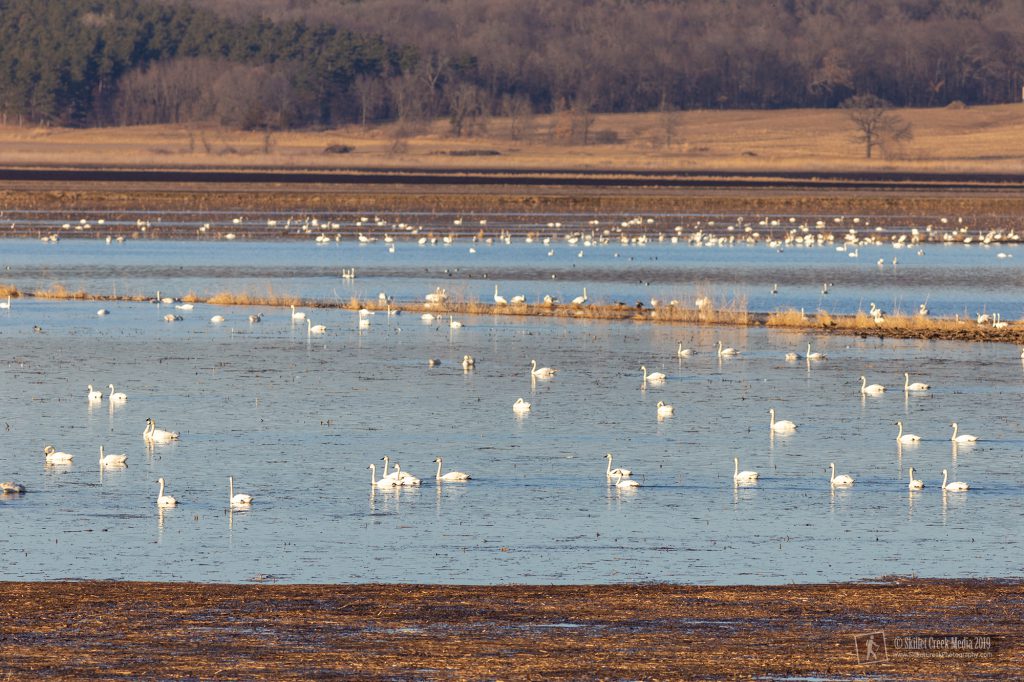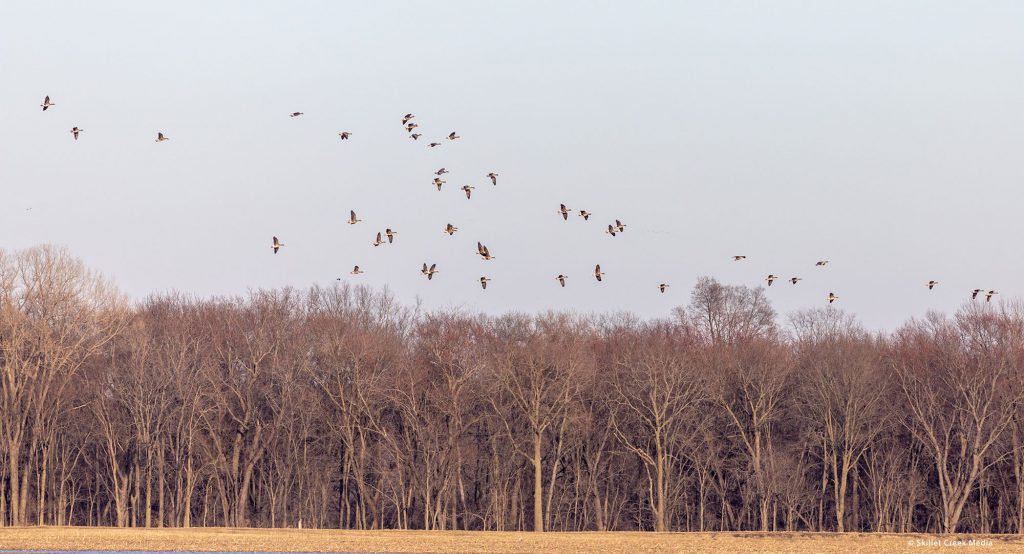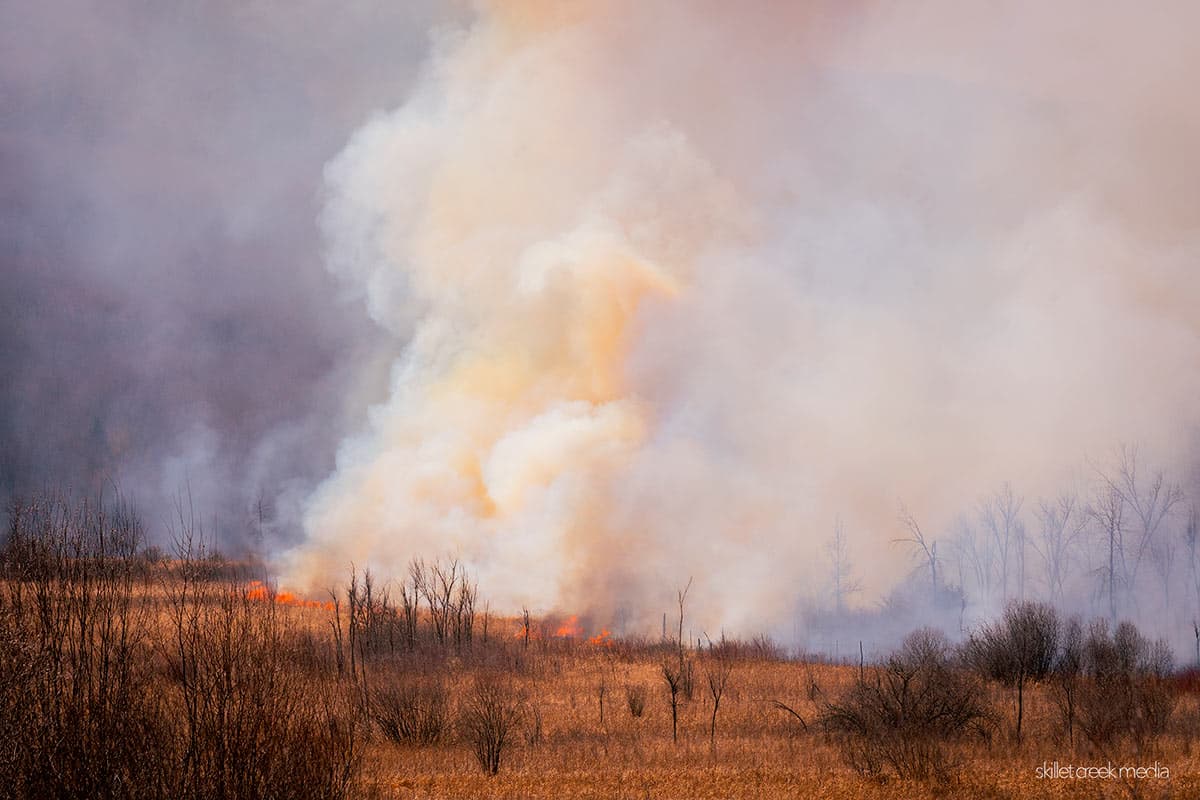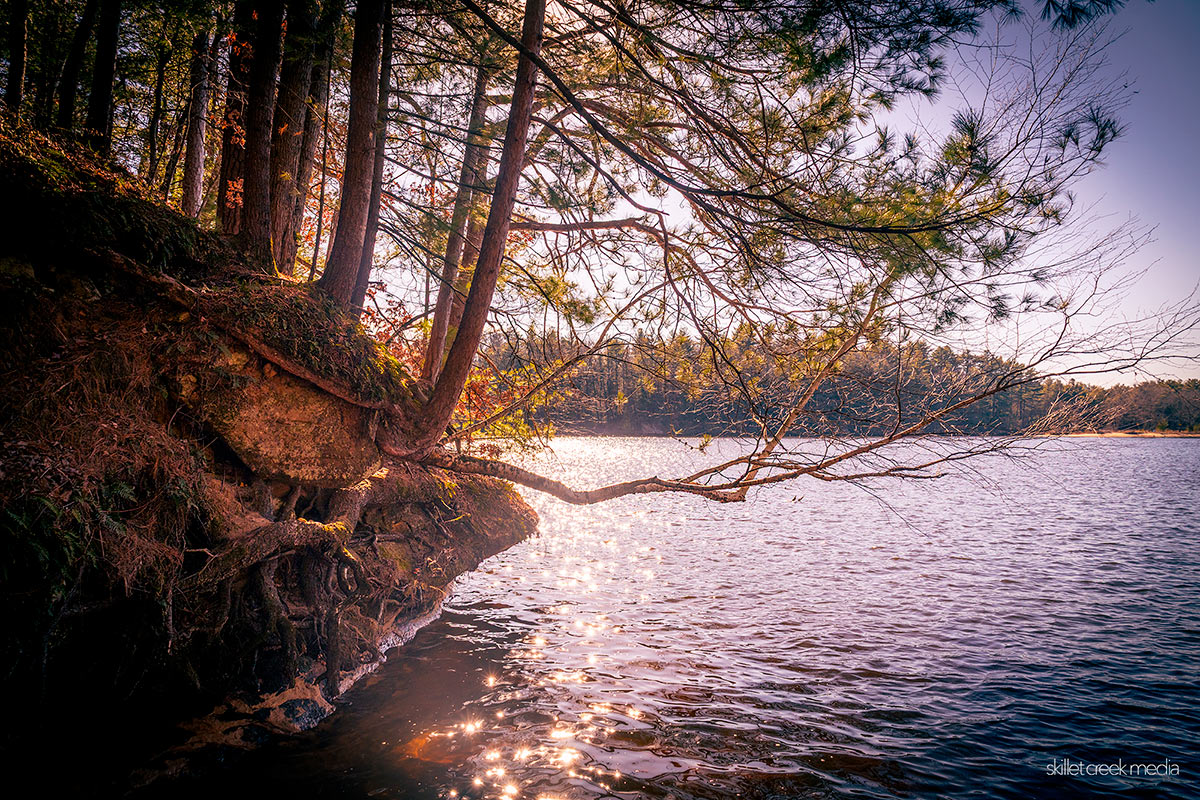Yesterday, March 18th, a prescribed burn was carried out on Devil's Lake State Park's Roznos…
While Baraboo is slowly becoming known as a destination to watch sandhill cranes during the fall migration, this spring, it’s the swans that are putting on the show! Swans, along with an amazing mix of geese and ducks! This year at least, Goose Pond Sanctuary has got nothing on the Baraboo Hills!
Living here in central Wisconsin, you soon learn all of the migration hotspots nearby from Goose Pond Sanctuary near Arlington, to Necedah Wildlife Refuge which is about an hour north. (Well, you do if your spouse is a self-identified bird nerd anyway!) In between, we have many locations where the arrival of the cranes, heron, ducks, geese, and even pelicans are almost like clockwork each spring. Obviously, when you think about wetland birds, you generally focus on the wetlands! (Other than the Great Blue Heron who are hanging out at Devil’s Lake’s group camp!) You can’t go wrong exploring areas nearby like the Wisconsin River near Sauk-Prairie, Gallus slough near Merrimac or the slough at Mirror Lake State Park. What you don’t often think about is where wetlands USED to be. That’s where we discovered this amazing sight.

You see, if you dig back into the early history of Sauk County you learn that much of what is now farmland east of Baraboo was once wetlands and flood plain. This land sits between the Baraboo and Wisconsin River must have been something to see 200 years ago. There are records of early surveyors slogging through these wetlands for days trying to parcel up the land. Who could have imagined that in just a short few years, that those endless marshes would be gone?
Of course today, these farm fields still flood regularly. The area is a floodplain after all! Anyone who drives highway 33 between Baraboo and the Interstate highway to the city of Portage beyond, has seen the fields become lakes many times over the years and even more often recently. I can only imagine that for centuries past these former wetlands had to have been a major stop off during the spring and fall migrations. I’m reminded of the stories we’ve all heard about the days when the sky “turned black” with passenger pigeons and when the sound of migrating whooping cranes was deafening.

This spring some of these former wetlands are again filled with water and this season at least, they are again offering respite to thousands of migrating birds. In the last 2 days we’ve seen (Thanks to my wife for the IDs!!); Trumpeter & tundra swans, Canada geese, sandhill cranes, white-fronted geese, northern pintails, American wigeons, greater scaup, mallards, redhead ducks, canvasback ducks and a variety of other little ducks too distant to ID. Of course, it won’t last. The birds will all be heading north any day. In a few short weeks, the sounds of wildlife will be replaced with that of farm machinery. The flooded fields will again sprout with soybeans and corn. Which I suppose is good news for the sandhill cranes who will gather here again next fall. (See the video below.)
If you want to learn more about locations about migration and birdwatching locations in our area, keep an eye out for the new DevilsLakeWisconsin.com going live in mid-April which will have a new detailed birdwatching section. You can also join our “Birds of Sauk County” group on Facebook for current sightings.

For nearly 2 decades the Skillet Creek blog has focused on 3 main goals; To inspire you to visit and explore the Devil’s Lake region, to help you get the most your visit by sharing tips, events, and other helpful information. Lastly to advocate for our environment & wildlife and talk about how we can keep our natural areas amazing now and into the future! That last goal can sometimes cause controversy, but it’s the only way we can accomplish the first two. – Derrick Mayoleth, Owner.



